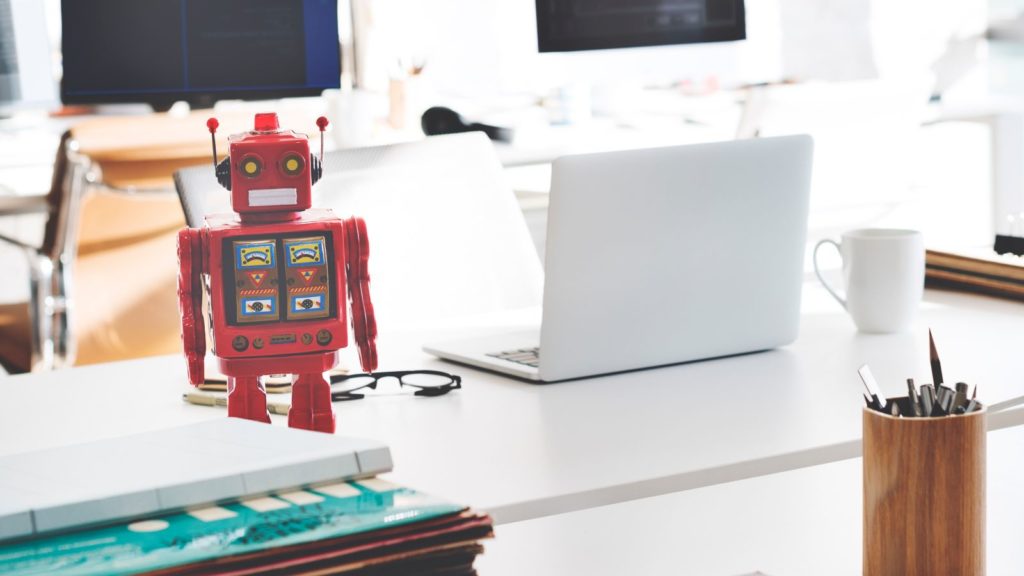Donald Trump’s call for Netflix to remove board member Susan Rice has intensified the Paramount saga, pushing the streaming wars into a political confrontation.
Industries likely to crash if they don’t adopt AI in 2023

Businesses across the globe will have to step up and adapt to add AI to their list of tools in order to stay competitive in the evolving business landscape.
AI (Artificial Intelligence) is here and is poised to become one of the most transformative tech of our time.
In short, the addition of AI has not only accelerated efficiency but continues to grow at light speed, possibly impacting many sectors.
We look at the few industries set to be hard hit by the addition of AI.
Manufacturing
The old process in manufacturing is under threat as AI not only optimizes production lines with predictive maintenance but it does also cater quality control, which is a major production bonus.
AI-powered robots in factories are set to increase automation and efficiency. These so-called smart machines will autonomously transform the manufacturing field by performing complex tasks while reducing costs.
Healthcare
Healthcare is also one sector that is under threat provided it does not incorporate AI in its tool set. AI will ultimately revolutionize this field by enabling faster and more accurate diagnostics, drug discovery, and personalized treatments.
Think, of personalized treatment as a major groundbreaking addition, which will assist doctors to make informed decisions in an effort to improve patient outcomes.
AI systems will most likely analyze vast amounts of data for a pattern, in an effort to enhance surgical procedures while streamlining administrative tasks.
Transport
This industry is one of the most resilient industries in the world but will also be impacted by AI.
Self-driving vehicles are here and will become more prevalent, once mastered to provide safer and more efficient transportation.
Think, of vehicles optimizing the best possible route when you step on board.
Self-driving vehicles will have the ability to reduce traffic congestion, and ultimately enhance logistical operations.
Finance
Fraud detection is one of the first pillars AI will possibly remedy in the finance sector while AI-powered chatbots including virtual assistance will handle customer queries.
AI algorithms will analyze massive amounts of data to detect anomalies in order to mitigate risks, while AI tailored robots will provide solid investment recommendations.
Retail
The retail industry may still have a couple of years to transform in the country, but AI is set to transform the retail industry by providing a personalized customer experience.
Think, apps knowing exactly what you’re likely to buy before you run out.
The addition of AI in retail means improved supply chain management, virtual shopping assistants which recommend products which intern streamlines customer support.
Complex algorithms will analyze consumer behaviour in order to optimize what you have in the fridge, closet, or bathroom in order to provide possible solutions and pricing strategies.
Agriculture
Crop yield prediction is an important aspect of Agriculture and AI-powered drones with sensors will most likely monitor crops, detect possible diseases and a bad batch while optimizing irrigation.
Analyzing data is a huge part of the agricultural sector and with the help of AI algorithms, to analyze environmental data, farmers will have real-time insight in order to make more informed decisions.
The simple conclusion is this, add it or be left behind as the introduction of AI will revolutionize not only the industries listed above but many others which most likely will emerge as a result of AI.
These sectors are set to undergo an uncomfortable transformation as AI technology advances to become more accessible.
Businesses, not only in the country but across the globe will need to adapt to embrace AI in an effort to stay competitive or be left behind by more fluid businesses ready to take the curve at warp speed.
Also read: WATCH: Was Malema right? Eskom pushes to Stage 6 load shedding

